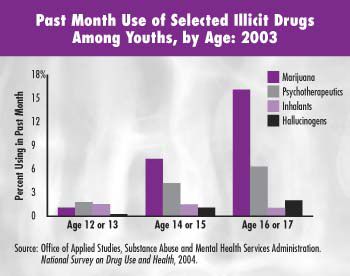With a growing abuse of prescription medications, local behavioral health has redoubled efforts to deal with the problem.
But the community’s final line of defense for stopping the current epidemic rests with local law enforcement agencies.
“Besides methamphetamines, prescription drugs have become the focus of our efforts,” said Carbon Metro Drug Task Force Officer Robb Radley.
The task force has access to all medical prescriptions written statewide, explained Radley. And the law enforcement officers monitor the prescriptions closely.
“Our recent investigation into local physicians has shown that as much as 95 percent of prescriptions written are legitimate. It is the other five percent that we are taking notice of,” Radley continued. “A recent investigation showed significant number of pills going to one household in the county. When we see that kind of number it becomes apparent that those meds are finding their way onto the street.”
On a national level, the federal office of drug control policy indicates that there are a variety of responses to prescription fraud that can be used by law enforcement agencies, pharmacists and others to prevent the crimes.
The methods include:
•Improving pharmacists’ screening of prescriptions and patients.
•Employing security measures like physicians’ use of tamper-resistant prescription pads.
•Prescribing drugs electronically.
•Creating a database of customers.
•Conducting police crackdowns to target specific doctors and/or pharmacies.
Several states, including Utah, have developed prescription monitoring programs.
The programs can help prevent and detect the diversion and abuse of pharmaceutical controlled substances.
Through the United States Bureau of Justice’s Harold Rogers prescription drug monitoring program, federal funds are available to develop and enhance similar programs.
According to 2005 data compiled by the U.S. Drug Enforcement Administration, DEA agents made 236 arrests involving only OxyContin.
Federal, state and local law that individuals unlawfully obtain medical prescriptions through a variety of means.
The methods used by people to obtain the drugs include:
•Doctor shopping or resorting to other types of medical prescription fraud.
•Buying prescription medications from illegal online pharmacies.
•Committing thefts and /or burglary involving private residences, pharmacies, businesses, etc.
•Receiving and/or purchasing the drugs from friends and family.
In addition, negligent or occasionally intentionally over-prescribing by physicians and health providers contribute to the problem.
According to officer Radley, prescription forgery and doctor shopping are something that the drug task force watches closely.
The drug task force is able to access the prescription database from the local agency’s office and develop patterns as well as evidence from what is posted on the site.
“Fraud is a big problem right now, it is important that patients are truthful with their physicians because prescription fraud is a felony and knowingly lying to you doctor is fraud,” commented Radley.
“Doctor shopping is also a felony and coupled with the insurance fraud that often accompanies it an individual can rack up several felony charges,” continued the drug task force representative.
Along with cracking down on defendants charged with unlawful possession or distribution of medical prescriptions, the 7th Judicial District recently initiated a drug court program to more effectively deal with the criminal aspect of abuse.
“If non-violent substance abusing offenders are going to change their behavior, the criminal justice system has to catch their attention,” stated Laurie Robinson, an assistant at the Utah Attorney General’s Office.
“In the traditional court process, these offenders have too often cycled in and out repeatedly at taxpayers’ expense. The approach taken by drug courts, however, can make a difference,” continued the assistant attorney general.
Robinson explained that drug court programs combine intensive judicial supervision, mandatory testing, escalating sanctions and treatment to help substance abusing offenders break the cycle of addiction and the accompanying crimes .
At the local level, 7th District Judge George Harmond presides over Carbon County’s drug court program.
The judge works with prosecutors, defense attorneys, probation officers and drug treatment specialists to order appropriate treatment for offenders, monitor the participants’ progress and ensure the delivery of other services like education or job skill training to help offenders remain crime and drug free.
Drug Czar John Waters sums up the dangers of the growing problem with prescription medication misuse.
“We are in danger of becoming a nation of pill poppers. Increase in the abuse of prescription drugs has been fueled worldwide by misperceptions of the potential harms of these powerful drugs, making it more critical than ever that we raise public awareness about the dangers of their misuse,” stressed Waters.
Prescription drug abusers face criminal prosecution

